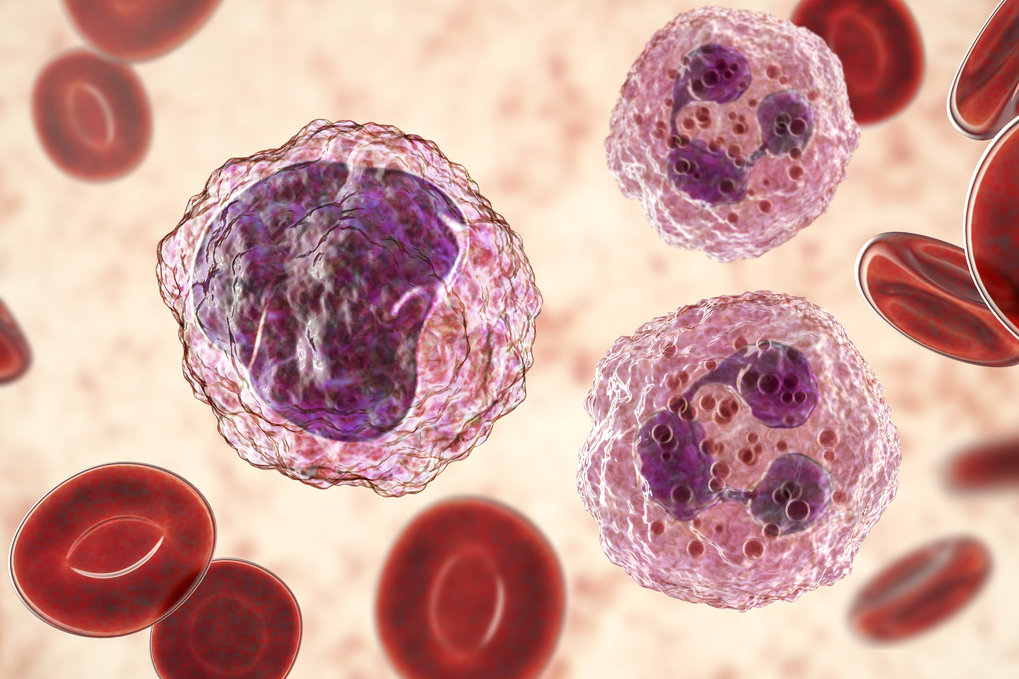New therapeutic approach against leukemia

Peter Krenn from the Department Molecular Medicine (Director Reinhard Fässler) at the Max Planck Institute of Biochemistry has found a new way to attack leukemic stem cells.
Blood – the juice of life Blood supplies complex organisms with nutritive substances, transports metabolic products or messenger substances. Cellular components of blood are erythrocytes responsible for the transport of oxygen and carbon dioxide, thrombocytes responsible for blood coagulation and leukocytes responsible for the immune defense. As each of these blood cells has a limited lifespan, and are massively lost during bleeding or consumed during infections. Hence, they must be continuously replaced, which is ensured by the so-called hematopoietic stem cells in the bone marrow. These cells have the ability to develop into any type of blood cell. Chronic myeloid leukemia In chronic myeloid leukemia, the hematopoietic stem cell undergoes a genetic mutation by recombining chromosome 9 and 22. As a result, gene building blocks fuse that would otherwise not be in contact with each other. The incorrectly assembled chromosome is called Philadelphia chromosome and harbors the construction manual for the so-called BCR-ABL oncogene. This causes the leukemic stem cell to behave selfishly: it divides and multiplies drastically at the expense of healthy blood stem cells.
